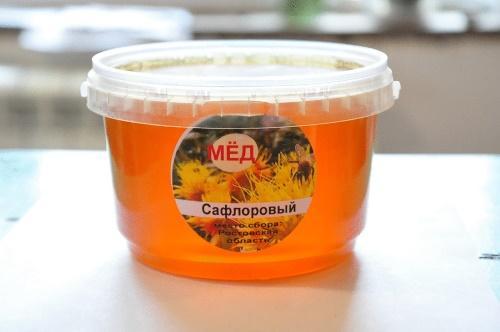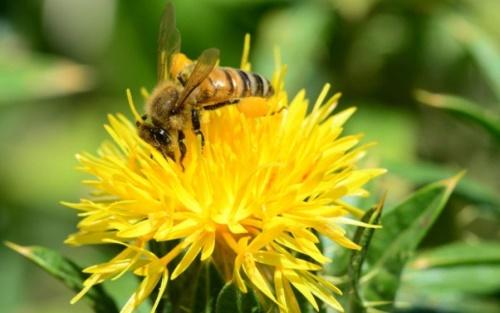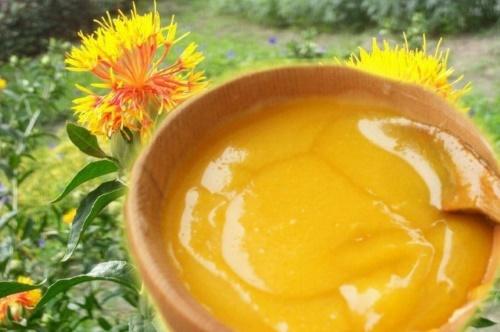Healing properties of safflower honey - light, pleasant, but with a piquant bitterness
 One of the rarest is the monofloral safflower honey, although the honey plant itself often grows as a weed in the wild. But this in no way diminishes the healing properties of safflower honey. This beekeeping product has a stronger effect on the body than other types of honey and cleans it better. It also contains more carotene and vitamins K and E, which makes safflower honey an irreplaceable aid in the treatment of the nervous system and eye diseases. What is the uniqueness of this variety, how to “recognize” it, and what properties does it possess?
One of the rarest is the monofloral safflower honey, although the honey plant itself often grows as a weed in the wild. But this in no way diminishes the healing properties of safflower honey. This beekeeping product has a stronger effect on the body than other types of honey and cleans it better. It also contains more carotene and vitamins K and E, which makes safflower honey an irreplaceable aid in the treatment of the nervous system and eye diseases. What is the uniqueness of this variety, how to “recognize” it, and what properties does it possess?
What is safflower honey

As for the apiary, although safflower itself produces nectar, it is not enough of it, therefore it is not industrially grown as a honey plant. In addition, the nectar release period lasts no more than 2 weeks and the average bribe per hectare is about 30 kg. It is much more profitable for the beekeeper to place the hives so that others grow nearby honey plants... Therefore, monofloral safflower honey is rare. But even as a polyfloral product, this type of honey is extremely useful and healing.
Safflower honey has a thick, jelly-like consistency. It is light yellow, with a subtle floral aroma, crystallizes for a long time, after which it becomes even thicker and brighter. Tastes like flower honey, moderately sweet, but with a slight bitter aftertaste.
The healing properties of safflower honey
 Beautiful yellow honey contains many vitamins and trace elements. Thanks to them, it has a positive effect on the human body, namely:
Beautiful yellow honey contains many vitamins and trace elements. Thanks to them, it has a positive effect on the human body, namely:
- strengthens the immune system;
- relieves nervous tension and helps in the treatment of diseases of the nervous system;
- honey masks improve skin condition and heal various damages;
- makes hair shiny and silky;
- has a laxative, bile and diuretic effect;
- relieves pain in inflammatory processes in the joints, as well as in arthritis and rheumatism;
- thins the blood;
- helps in the treatment of colds, various inflammatory processes of the oral cavity and respiratory tract.
At the same time, you should be careful when using safflower honey, both for treatment purposes, and simply with tea or pancakes. Safflower pollen can cause an acute allergic reaction. In addition, due to the laxative effect, this honey should not be eaten in case of intestinal upset.
Interested in safflower honey by accident.
And I was pleased with your annotation.
Thank!